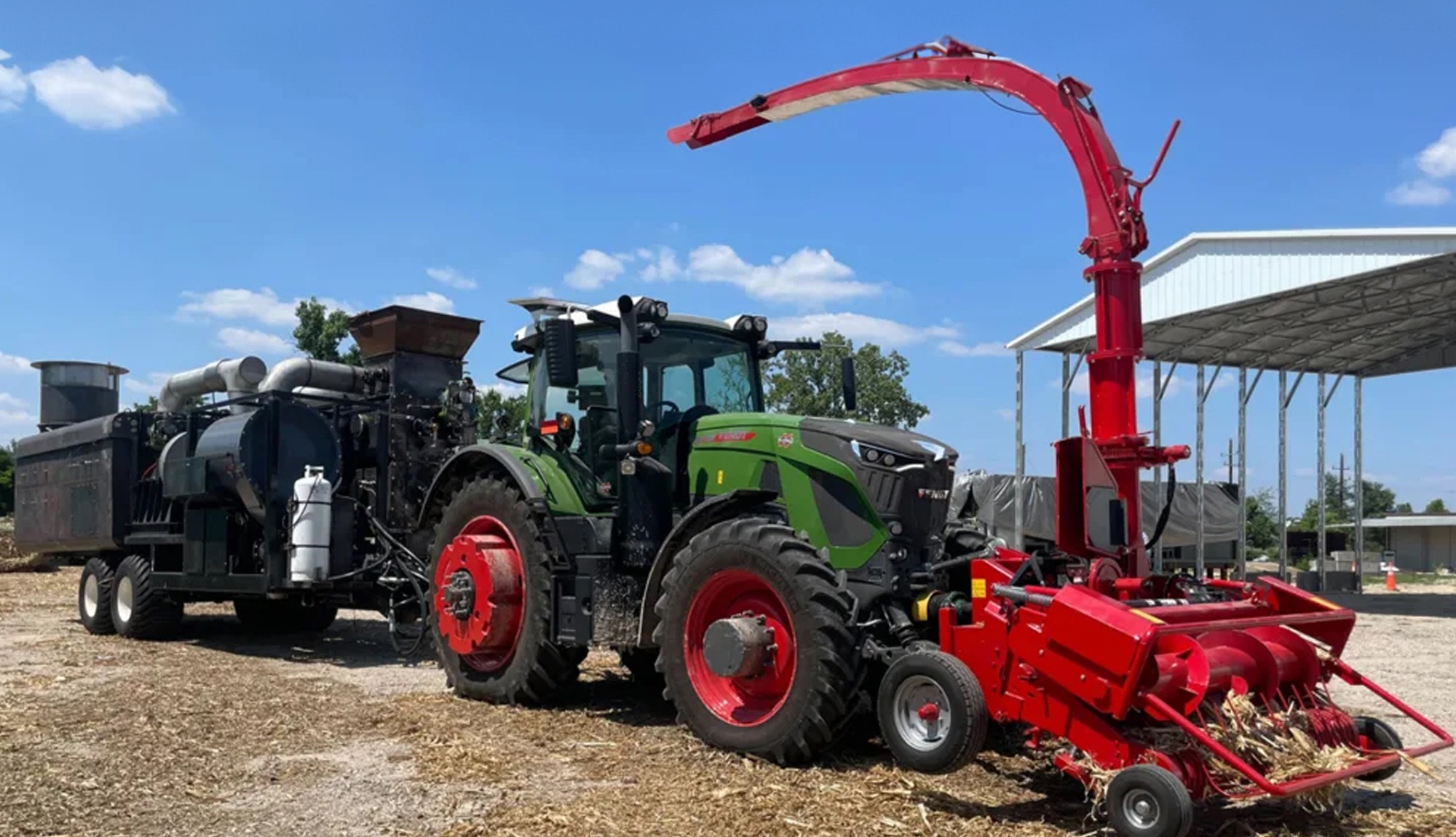
Sep 25, 2024
Above: Applied Carbon’s pyrolyzer. PHOTO CREDIT: Applied Carbon
Applied Carbon, formerly known as Climate Robotics, has developed a mobile, in-field solution that picks up crop waste left after harvesting and converts it into carbon-rich biochar in a single pass.
The resulting product is deposited back onto the field, simultaneously increasing soil health, improving crop yields, reducing fertilizer needs, and providing a carbon removal and storage solution that lasts millions of years.

The 2024 Wilkes Climate Launch Prize is one of the largest university-affiliate climate awards in the world and is geared to spur innovation and breakthroughs from organizations at all stages, both for-profits and nonprofits—anywhere in the world—to help fund and accelerate solutions to climate change.
“People talk about the ‘missing middle’ of funding in climate tech. For early-stage research, you use government grants to prove the science. Once you have a working design, you might get VC money. But when it comes to building your first few prototypes, investors can’t take the risk,” said Jason Aramburu, CEO and co-founder Applied Carbon. “Programs like the Wilkes Climate Launch Prize are really important to fill a crucial funding gap.”
William Anderegg, director of the Wilkes Center for Climate Science & Policy, awarded the prize to Aramburu during an evening reception held in partnership with the Southwest Sustainability Innovation Engine (SWISIE), a multi-institutional enterprise in which the U and collaborators confront climate challenges facing the desert Southwest and spur economic development in the region.
“Applied Carbon’s bold climate solution addresses a major opportunity for agriculture to contribute to removing carbon from the atmosphere, benefiting farmers and soil health at the same time,” said William Anderegg. “It’s exactly the type of scalable and impactful solution that the Wilkes Climate Launch Prize seeks to supercharge.”
Aramburu and Applied Carbon COO and co-founder Morgan Williams dreamed of a better system that could pick up crop waste and produce and distribute biochar in one pass. Now, they’ve developed an agricultural robot called a pyrolizer that does it all in-field, in one pass.
Read the full article by Lisa Potter in @TheU.
